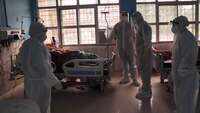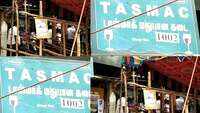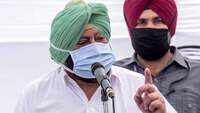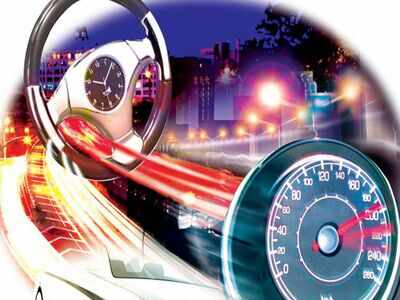
MUMBAI: Fatal road crashes and casualties in the city dropped by more than half during the lockdown months of March to July compared to the same period last year. Seventy-four fatal accidents left 77 people dead during the past five months. By comparison, between March and July 2019, 175 fatal crashes had killed 188 people.
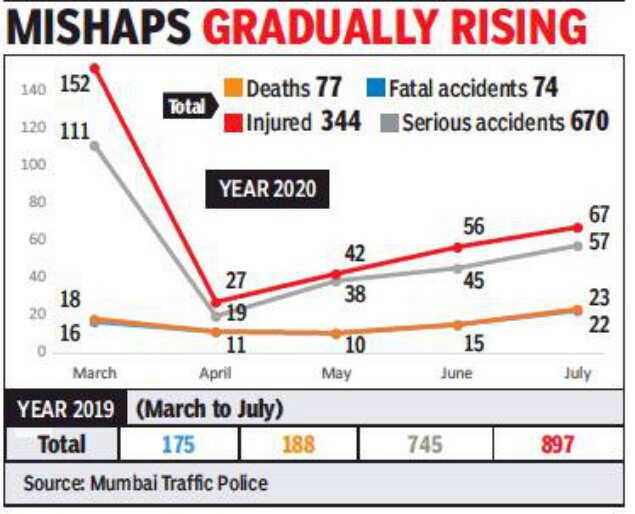
Meanwhile, serious, non-fatal crashes have dipped by just 10% during the same period. Traffic police attribute this to mechanical faults in vehicles lying unused for long during the lockdown months and then being brought out on the streets.
“As the city has started to gradually unlock, we are finding many vehicles on the streets that are not road-worthy. There have been many more instances of vehicles turning turtle or getting involved in collisions. Motorists have been driving with the expectation that the vehicle will function in a certain way, which it doesn’t. Our appeal is to get vehicles thoroughly serviced and checked before setting out on the roads and do not step out for non essential purposes,” said Madhukar Pandey, joint commissioner, traffic.
Both fatal and non-fatal accidents have been gradually rising since May though. From 10 fatal accidents in May, the numbers rose to 15 in June and 22 in July.
“Studies in the US have shown that while there were fewer accidents when people stayed indoors, the numbers picked up as they began to restart activity outdoors. With the high traffic volume in Mumbai, there is a concern here as well that accidents would surge once lockdown ends,” said Amruta Ponkshe, who works on mobility and urban infrastructure with the Observer Research Foundation (ORF). She said incomplete road works were another reason for the crashes. “As people who have been indoors for months are now stepping out, more awareness needs to be built about road safety which hasn’t been strong in the first place.”
In May, Aaryaman Nagpal, the 18-year-old son of a hotelier, was killed when a car steered by his friend, Shaurya Jain, crashed into a bus at Marine Drive. In a separate case in the same month, Hitesh Golchha, the owner of a car service centre, died after his Jaguar rammed into a stationery tempo.
“The lockdown has presented us with an opportunity to get back to working on road safety. This would be a good time to look at solutions to curb traffic volumes and fatalities such as intelligent traffic management systems and non-motorized transport. Levying congestion pricing can be considered particularly since the need for social distancing is likely to push people away from public transport and towards private transport,” Ponkshe said.

Meanwhile, serious, non-fatal crashes have dipped by just 10% during the same period. Traffic police attribute this to mechanical faults in vehicles lying unused for long during the lockdown months and then being brought out on the streets.
“As the city has started to gradually unlock, we are finding many vehicles on the streets that are not road-worthy. There have been many more instances of vehicles turning turtle or getting involved in collisions. Motorists have been driving with the expectation that the vehicle will function in a certain way, which it doesn’t. Our appeal is to get vehicles thoroughly serviced and checked before setting out on the roads and do not step out for non essential purposes,” said Madhukar Pandey, joint commissioner, traffic.
Both fatal and non-fatal accidents have been gradually rising since May though. From 10 fatal accidents in May, the numbers rose to 15 in June and 22 in July.
“Studies in the US have shown that while there were fewer accidents when people stayed indoors, the numbers picked up as they began to restart activity outdoors. With the high traffic volume in Mumbai, there is a concern here as well that accidents would surge once lockdown ends,” said Amruta Ponkshe, who works on mobility and urban infrastructure with the Observer Research Foundation (ORF). She said incomplete road works were another reason for the crashes. “As people who have been indoors for months are now stepping out, more awareness needs to be built about road safety which hasn’t been strong in the first place.”
In May, Aaryaman Nagpal, the 18-year-old son of a hotelier, was killed when a car steered by his friend, Shaurya Jain, crashed into a bus at Marine Drive. In a separate case in the same month, Hitesh Golchha, the owner of a car service centre, died after his Jaguar rammed into a stationery tempo.
“The lockdown has presented us with an opportunity to get back to working on road safety. This would be a good time to look at solutions to curb traffic volumes and fatalities such as intelligent traffic management systems and non-motorized transport. Levying congestion pricing can be considered particularly since the need for social distancing is likely to push people away from public transport and towards private transport,” Ponkshe said.

Coronavirus outbreak
Trending Topics
LATEST VIDEOS
More from TOI
Navbharat Times
Featured Today in Travel
Get the app

